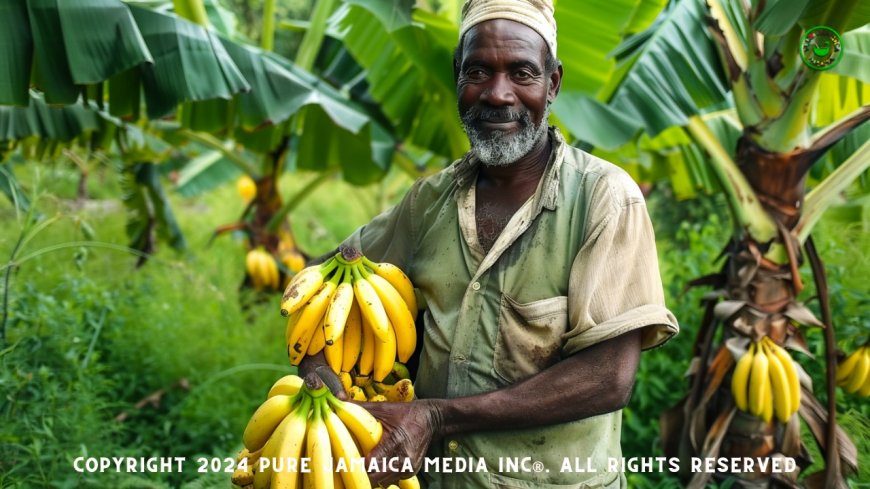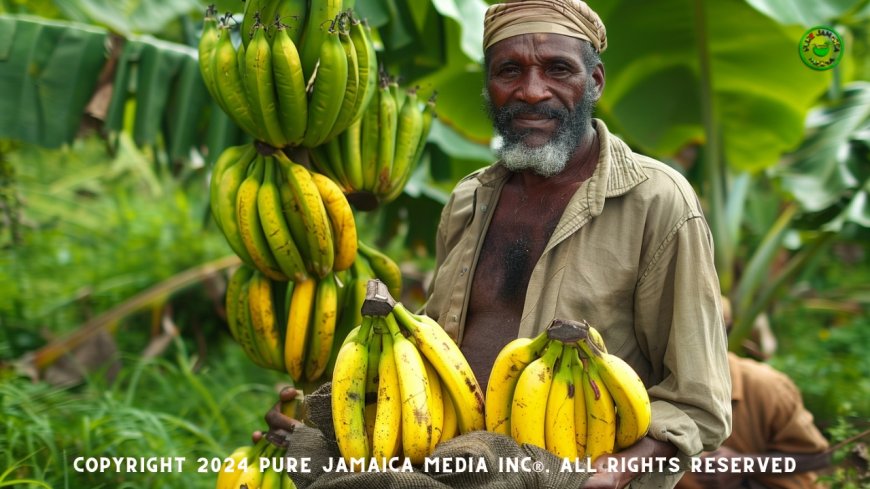New Regional Training Program Equips Farmers With State-of-the-Art Diagnostic Skills In Banana Diagnostics & Surveillance

The local banana industry in Jamaica is set to receive a significant boost with the training of six banana farmers. This training aims to equip them with valuable skills in banana diagnostics and surveillance, enabling them to effectively identify and combat potential diseases that pose a threat to the industry.
Janet Conie, the General Manager of the Jamaica Banana Board, has revealed that the farmers will be trained to use the Loop-Mediated Isothermal Amplification (LAMP) diagnostic tool. This regional training initiative is part of broader efforts to enhance regional food security, as bananas remain a vital part of the local diet and a significant export commodity.

The LAMP diagnostic tool is specifically used to determine the presence of Tropical Race Four (TR4) disease in the field. Unlike traditional methods that require sending samples back to the lab for confirmation, the LAMP tool allows for on-site diagnosis. While it may not be used on an everyday basis, it serves as a valuable tool to confirm diagnoses when suspicions arise.

Jamaica is among several countries and territories participating in this training program, including Trinidad and Tobago, Guyana, Dominica, St. Lucia, Saint Vincent and the Grenadines, Suriname, Martinique, and Guadeloupe. The five-day training will be conducted by the French Agricultural Research Department (CIRAD) and will take place from April 15 to 19 at the Life Sciences Department of the University of the West Indies (UWI) Mona campus. The workshop aims to train at least 15 individuals from across the region.
In addition to TR4, the training will also cover other major diseases not yet present in some islands, such as the Banana Bunchy Top Disease and the Banana Bract Mosaic virus. These diseases pose a significant threat to the local banana industry and require proactive measures to prevent their introduction. The training will also address the Moko disease, which has already been observed in the region but has not affected all Caribbean territories.
The Ministry of Agriculture, Fisheries, and Mining has endorsed this training initiative, and it is being funded by the Caribbean Plant Health Directors (CPHD) Forum, acting as the Technical Advisory Committee (TAC) to the Caribbean Agricultural Health and Food Safety Agency (CAHFSA), the Regional Plant Protection Organization (RPPO). The CPHD plays a crucial role in identifying, developing, coordinating, and safeguarding efforts in the Caribbean to combat emerging pest threats.
In conclusion, the training of Jamaican banana farmers in banana diagnostics and surveillance is a significant step toward boosting the local banana industry. By equipping farmers with the necessary skills and tools to identify and combat diseases, such as TR4 and other major threats, the industry can ensure the continued growth and sustainability of banana production in Jamaica and the wider Caribbean region.
For more information on the local banana industry and other agricultural updates, visit www.purejamaicamedia.com

 Jaii
Jaii 





